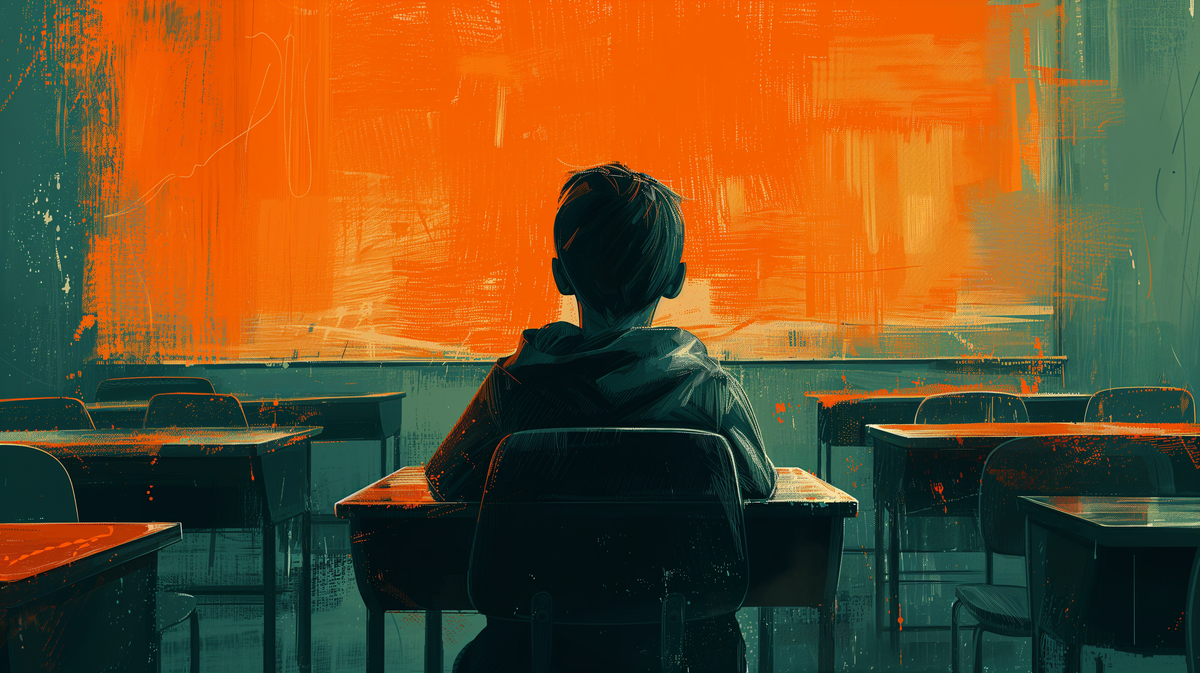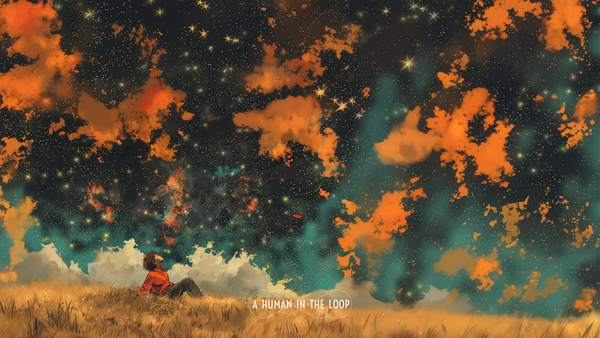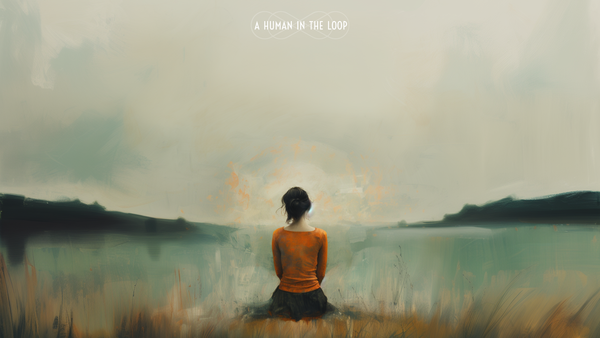I’ve Always Been Terrified of Writing. AI Changed That.
How AI has helped me as an adult make sense of the mental chaos I’ve known since childhood.

There's something I must confess.
I'm terrified of writing.
Like, bite my nails to the quick, terrified.
Since childhood, I've struggled to translate the chaos in my mind–a tangled web of yarn–into written words on the page.
The dread sat heavy in my belly during those hours leading up to an in-class writing assignment.
Sitting in discomfort was unbearable. It still is.
In elementary school, my teacher would distribute blank sheets of paper and number two pencils before sharing the writing prompt.
We waited for the second hand to return to the twelve--she wanted to ensure there would be no dispute over pencils down when the hour was up.
This is when the dread would heighten. It was as if I were standing on stage, held captive by the bright lights, a full house of eyes staring at me, and I don’t remember my lines. Worse. I don't even know what play we're performing!
"You may begin," she said as the tension broke and everyone began to write.
Everyone but me.
It wasn't the absence of ideas that kept my pencil from contacting the page. It was quite the opposite. I was held back by fear and self-doubt, a raging flood of ideas determined to get out.
Each idea competing for my attention.
Eventually, the pressure of the clock would force me to pick one. I'd let the stream of thought flow onto the page, doing my best to keep my left hand from smudging the pencil lead off the page.
Somehow, I always managed to "In conclusion" right before the second hand rapidly made its way around to arrive at the twelve, another hour added to the clock's life.
Decades later, I continue to struggle with writing.
While I excelled at public speaking and performing on stage--studying theatre in undergrad, hosting a podcast, and speaking about the Future of Work in front of large crowds--articulating my thoughts in writing is still challenging for me.
I recently read somewhere (I will try to find the source) that the biggest challenge people have when trying to write essays, articles, or other original work is that writing forces you to slow down and think about what you're trying to say.
We've all been forced to smile through the impromptu toast at a wedding that takes you on a meandering ride that you never bought a ticket for and seems to go on forever. Afterward, you attempt to make sense of their ramblings, hoping to find the point.
This is not to say this doesn't happen when writing, but seeing the words on the page lets you see your word vomit splattered down the page in the form of run-on sentences--forcing your reader to pick out the chunks of your actual message.
Now, if that visual doesn't make you slow down and be thoughtful about how you communicate, I don't know what will.
In my professional life, I've found writing extremely helpful in avoiding misunderstandings. Not always, but taking the time to write something out versus speaking off the cuff allows you to be mindful of words and their impact.
- What you’re saying? Why is it important to you?
- Are you getting your point across? Is it landing?
- Does it align or conflict with your beliefs, values, or identity?
Feelings are Hard. Words are Harder.
It’s hard to sit with your feelings, and trying to put them into words on the page is even more challenging. Using AI has allowed me to express my unedited thoughts freely, dictating a stream of consciousness using voice-to-text.
Leveraging Anthropic’s Claude aOpenAI’sI’s ChatGPT, I can transform the chaos in my brain into an organized outline.
I can easily use large language models (LLM) like ChatGPT to quickly identify patterns in my stream of thought, getting to the root of what I want to convey.
From here, I draft an outline, ask for additional information, and make connections to other topics or ideas.
Using ChatGPT like a coach has given me the pep-talk needed to keep writing. In my Custom Instructions, I've set an expectation for ChatGPT to challenge me and provide the motivation like a grad school writing professor would.
Using tools like Grammarly, I can address issues in real-time (although I usually turn that feature off until I am done writing to avoid stopping when a red underline appears, signaling a mistake) and discover patterns with my mistakes--learning and improving incrementally.
Doing all of this on my own would feel so daunting that I would give up before I even began.
With my confidence boosted, my ideas are taking shape, and I am excited to share my thoughts and creativity with you.
Thank you for taking the time to read my writing and exploring my digital artwork.






